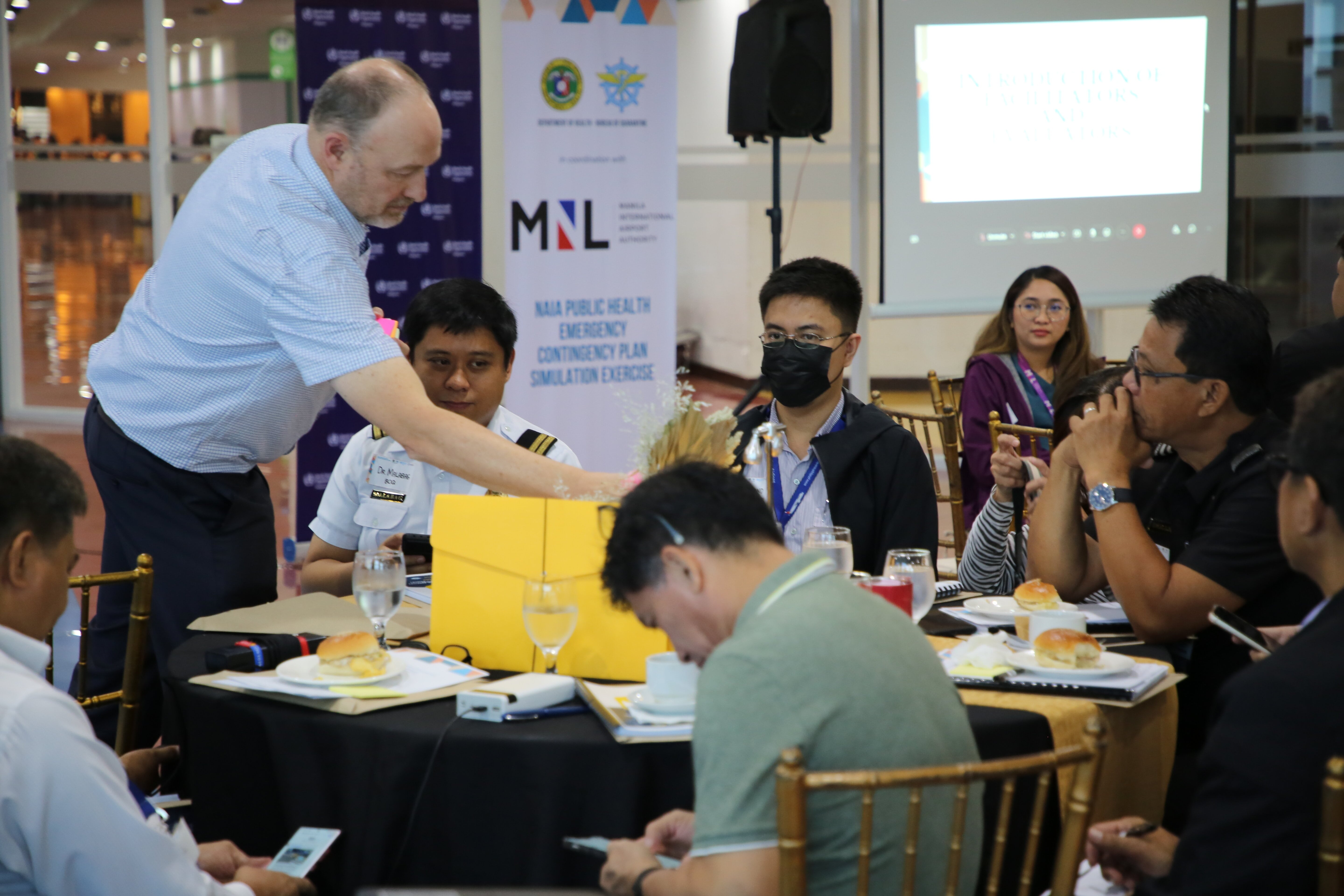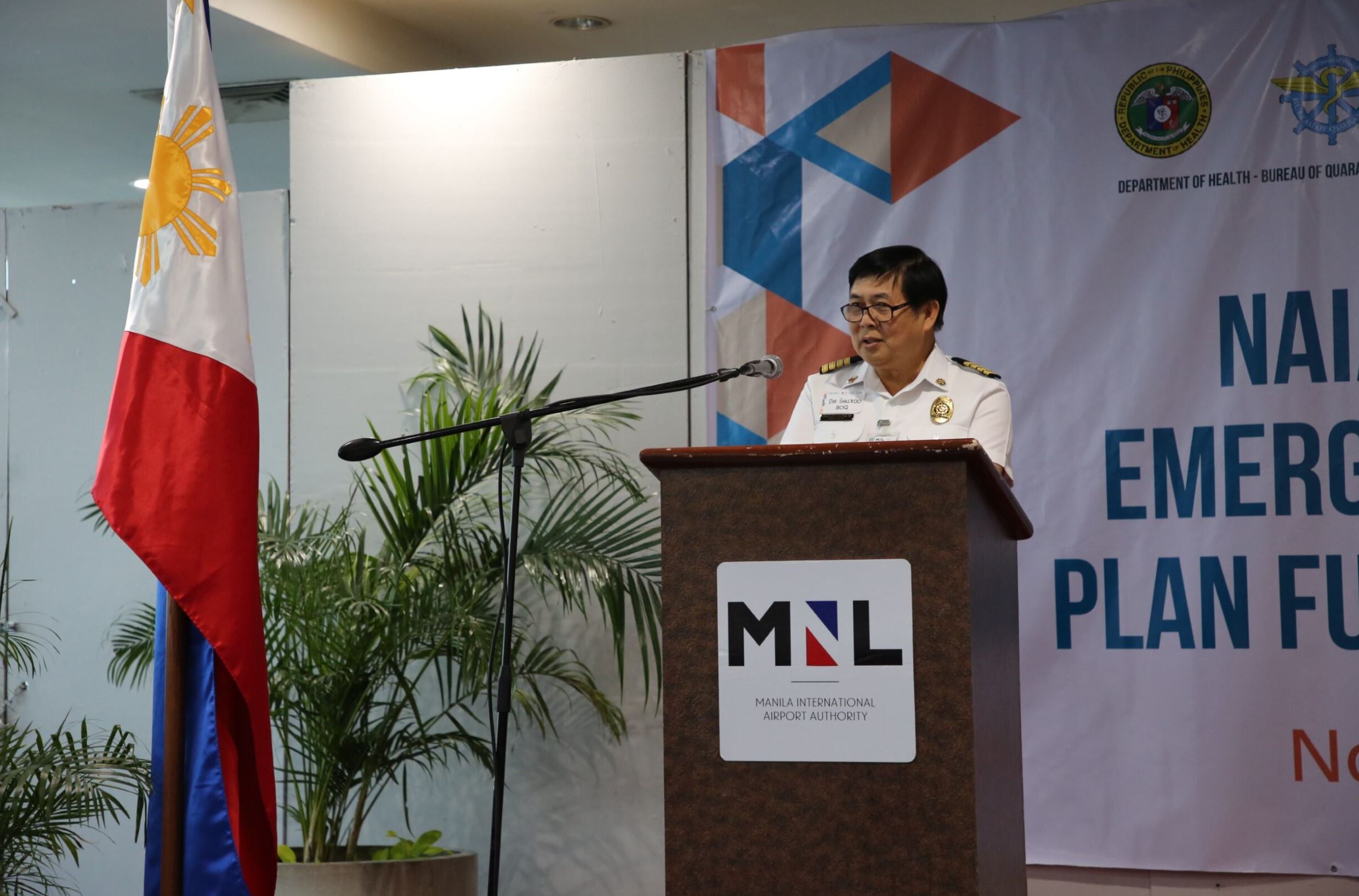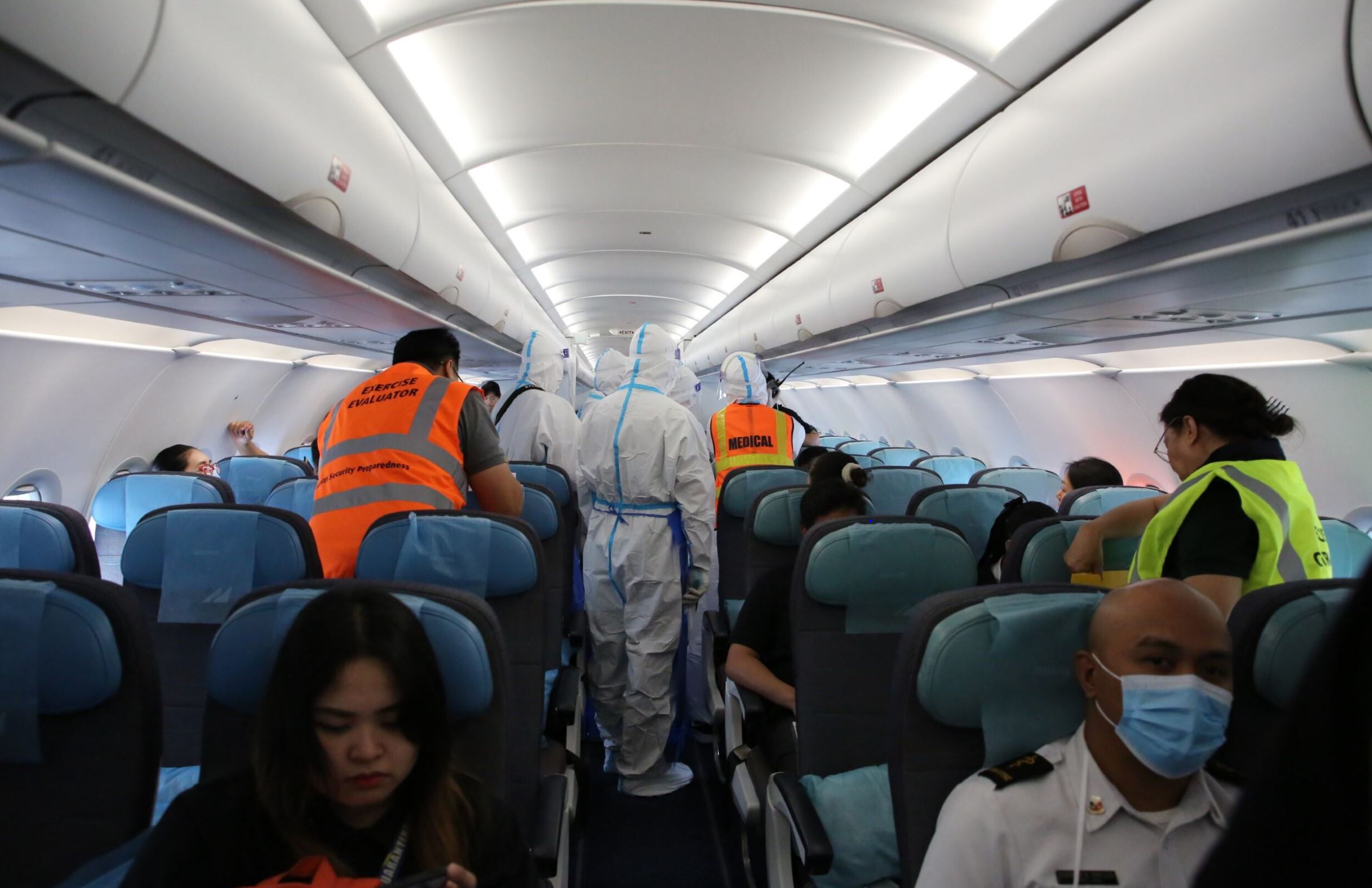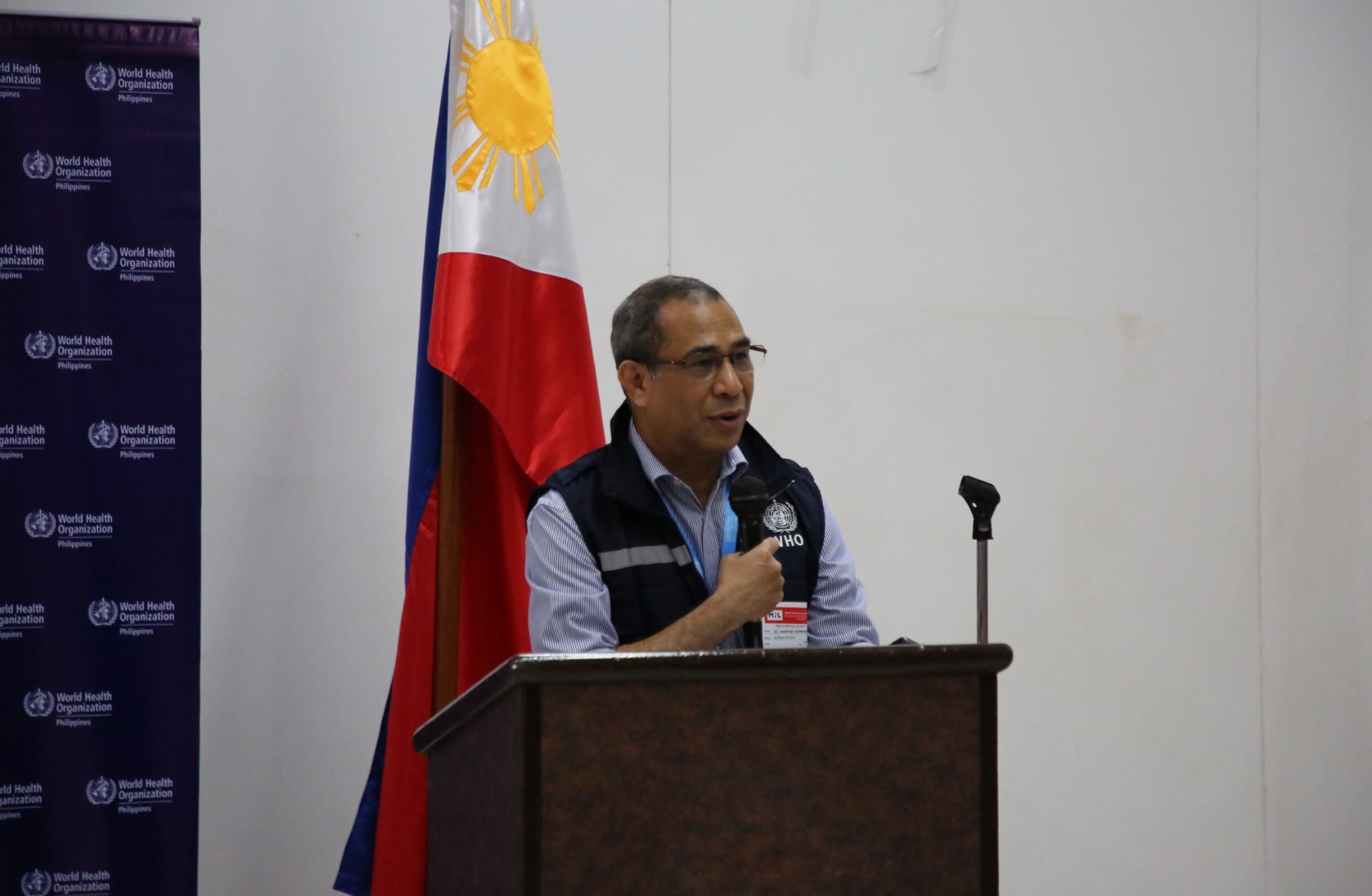In a proactive effort to enhance public health preparedness and response capabilities at points of entry (PoE), the Bureau of Quarantine (BOQ) of the Department of Health (DOH) in collaboration with the World Health Organization (WHO), USAID Philippines and the Manila International Airport Authority (MIAA) conducted comprehensive table-top and functional exercises on 14 to 16 November 2023 to test its Public Health Emergency Contingency Plan (PHECP). The aim of this initiative was to evaluate the Bureau's ability to manage and mitigate as effectively as possible the impact of potential public health threats of national or international significance in close collaboration with other relevant actors operating at the airport, including airlines.

Relevant stakeholders working at the NAIA airport and other public health partners participate in simulation exercises. (Photo Credit: Albert John Enrico A. Dominguez/ WHO Philippines)
“A comprehensive and dependable contingency plan is essential for the border control officers to respond and act in the event of a public health threat. This exercise helped our communication, coordination and response system to the test and will help us identify the gaps and challenges we need to address so we can effectively implement our mandate,” said BOQ Director Ferdinand Salcedo.

The first part of this three-day event was the tabletop exercise which was attended by the BOQ officers, various stakeholders and government agencies. This exercise aimed to improve the PHECP, share and review information on response capabilities, plans and procedures at PoEs, and assess the level of internal and external coordination and communication. Standard operating procedures (SOPs) for single inbound aircraft with suspect cases of a communicable disease on board were examined and analysed in facilitated group discussions.
 A functional exercise was also conducted in an aircraft to test capacities for identifying and reporting a suspected case arriving at the Ninoy Aquino International Airport (NAIA) in Manila. (Photo Credit: Albert John Enrico A. Dominguez/ WHO Philippines)
A functional exercise was also conducted in an aircraft to test capacities for identifying and reporting a suspected case arriving at the Ninoy Aquino International Airport (NAIA) in Manila. (Photo Credit: Albert John Enrico A. Dominguez/ WHO Philippines)
After each exercise, a debriefing was carried out at which participants shared their experiences, lessons learnt and recommendations. Since the exercise involved various agencies, stakeholders exchanged observations and made comments and suggestions to improve the contingency plan, including the communication and coordination system. Given that responding to a public health emergency is necessarily a shared effort, these contributions from different stakeholders were invaluable.
“I would like to reiterate WHO’s commitment to support the Philippines in enhancing the country’s capacity in preparedness and response to disease outbreaks. Please remember: no country is safe until all countries are safe. Let’s act now to protect Filipinos by strengthening national health security,” said Dr Rui Paulo de Jesus, WHO Representative to the Philippines.

Dr Rui Paulo de Jesus, WHO Representative to the Philippines, reiterates WHO’s commitment to support the Philippines in enhancing the country’s capacity in preparedness and response to disease outbreaks at points of entry. (Photo Credit: Albert John Enrico A. Dominguez/ WHO Philippines)
The BOQ remains steadfast in its adherence to international public health border regulations. The successful conclusion of these exercises reaffirms its commitment to continued improvement in managing public health threats at PoE.
